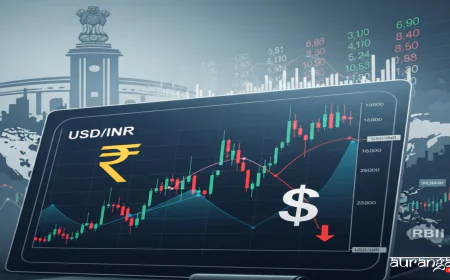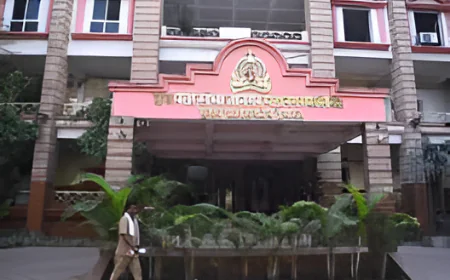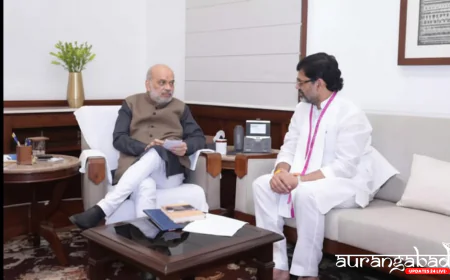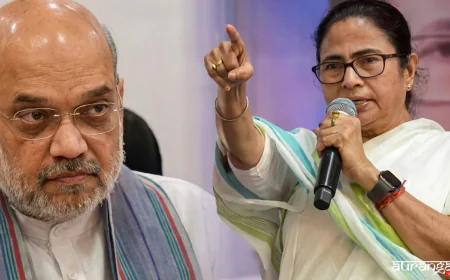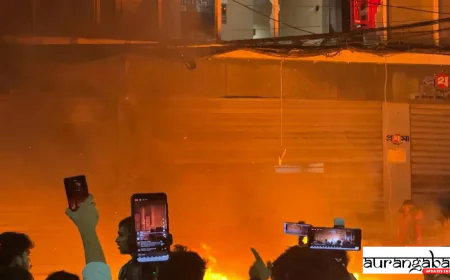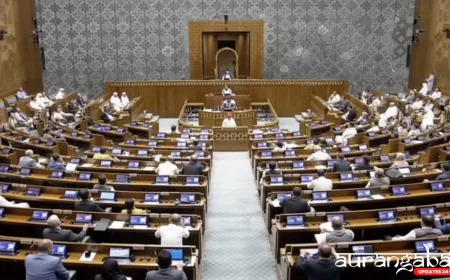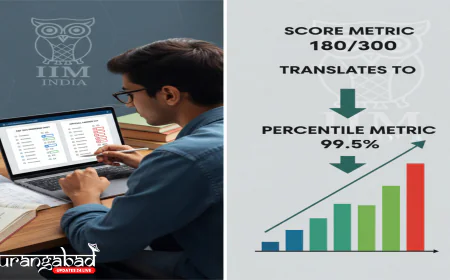Shinde's 'Jai Gujarat' Slogan Sparks Maharashtra Row
Maharashtra CM Eknath Shinde's "Jai Gujarat" slogan in Pune, in front of Amit Shah, ignited a major political controversy, drawing fierce opposition criticism over regional pride and state identity.
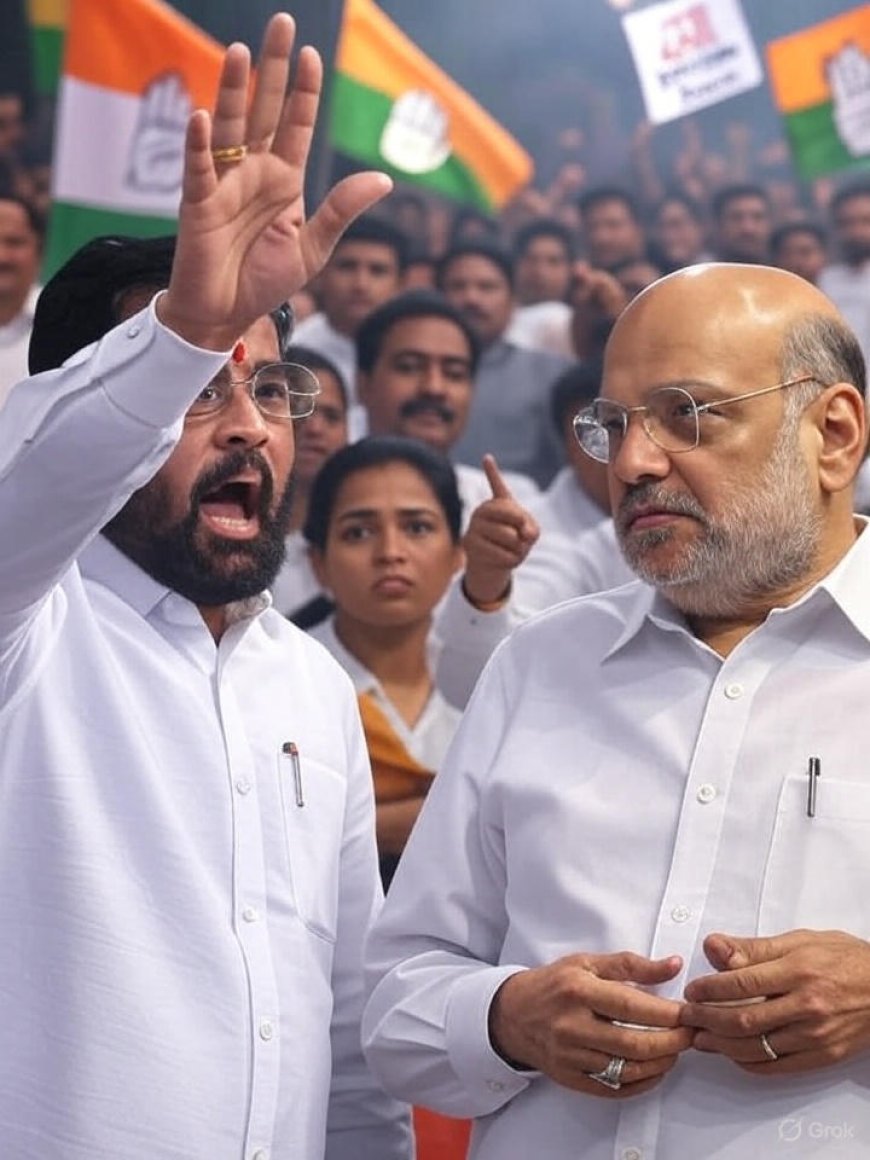
PUNE, Maharashtra – A seemingly innocuous, yet profoundly impactful, slogan uttered by Maharashtra Chief Minister Eknath Shinde during a public address in Pune has ignited a fierce political controversy across the state. In the presence of Union Home Minister Amit Shah, Shinde's chant of "Jai Gujarat" (Victory to Gujarat) quickly reverberated beyond the confines of the event, drawing immediate and scathing criticism from opposition parties. This incident has thrown a spotlight on the deep-seated regional sentiments, historical rivalries, and the delicate balance of political narratives surrounding state identity in India, particularly in a state as proud of its heritage as Maharashtra.
The incident occurred during a high-profile gathering in Pune, where Chief Minister Shinde was addressing an audience that included Union Home Minister Amit Shah, a prominent political figure from Gujarat. Towards the conclusion of his speech, in a moment that has since been dissected and debated across political spectrums and media platforms, Shinde reportedly exclaimed "Jai Gujarat." While the precise context leading to this utterance is subject to interpretation – whether it was an unthinking slip, a gesture of camaraderie with a powerful central leader, or a deliberate attempt at broader nationalistic overture – its immediate consequence was an uproar. The slogan, traditionally associated with the neighboring state of Gujarat, was perceived by many in Maharashtra as a significant gaffe, if not an outright insult, given the prevailing political climate and historical sensitivities between the two states. The visual of the Chief Minister of Maharashtra invoking the pride of another state, especially in the presence of a Gujarati dignitary, provided ample fodder for political opponents.
The historical relationship between Maharashtra and Gujarat is complex, marked by shared cultural threads but also distinct identities and, at times, economic competition. Both states were carved out of the bilingual Bombay State on May 1, 1960, a move that followed significant linguistic agitation, particularly for the formation of a Marathi-speaking state with Mumbai as its capital. The slogan "Jai Maharashtra" (Victory to Maharashtra) is not merely a regional chant; it is a powerful expression of Marathi pride, linguistic identity, cultural heritage, and a constant assertion of Mumbai's status as an integral part of Maharashtra. Over the decades, any perceived slight or attempt to dilute Maharashtra's economic or cultural significance, particularly in favor of Gujarat, has historically triggered strong reactions. Recent years have also seen political debates around industrial projects being diverted from Maharashtra to Gujarat, further fueling a narrative of economic competition and perceived neglect by the central government. Against this backdrop, CM Shinde’s “Jai Gujarat” slogan struck a raw nerve, seen by many as a betrayal of regional loyalty and a dilution of the very Marathi pride that his faction of Shiv Sena ostensibly champions.
The opposition parties in Maharashtra were quick to seize upon the opportunity presented by Shinde’s remark. Leaders from the Shiv Sena (Uddhav Balasaheb Thackeray) faction, the Nationalist Congress Party (NCP) – particularly the Sharadchandra Pawar group – and the Congress party launched a blistering attack. They accused Chief Minister Shinde of compromising Maharashtra's dignity and pride for political expediency, specifically to appease the Bharatiya Janata Party (BJP) high command, of which Amit Shah is a key figure. Shiv Sena (UBT) leader Uddhav Thackeray's faction, which was supplanted by Shinde's group, vehemently criticized the remark, framing it as an ultimate betrayal of the Marathi ethos and the legacy of Shiv Sena founder Balasaheb Thackeray, who fiercely championed Marathi identity. They highlighted the irony of a Chief Minister, whose political existence is rooted in a movement for Marathi rights, uttering a slogan for a different state. Opposition leaders termed it a "shameful act," "insult to Maharashtra," and evidence that the current state government was subservient to Delhi and Gujarat. The incident served as a potent rallying cry for the opposition, enabling them to reinforce their narrative that the ruling Mahayuti (grand alliance) comprising Shinde's Shiv Sena, BJP, and NCP (Ajit Pawar faction) was neglecting Maharashtra's interests.
Various interpretations and justifications have emerged regarding Shinde's controversial utterance. One perspective suggests it was a genuine "slip of the tongue," an accidental mix-up in the heat of a political rally, especially given the common practice of political leaders using slogans to energize crowds. Another theory posits it as a gesture of deference or camaraderie towards Union Home Minister Amit Shah, reflecting an attempt to project national unity or a close working relationship with the central leadership. Some analysts suggested it might have been an attempt to showcase a broader nationalistic outlook, transcending regional boundaries, particularly in a coalition government where diverse regional identities coalesce under a larger national party banner. However, the political reality in Maharashtra dictates that regional pride is a cornerstone of state politics, especially for a party like the Shiv Sena. Therefore, even if unintentional, the statement represented a significant political miscalculation. The ruling alliance likely attempted to downplay the incident, perhaps by reiterating their commitment to Maharashtra's development and pride, or by attributing it to an emotional moment, but the sheer volume of criticism from the opposition made it difficult to brush aside.
The implications of this incident for Maharashtra's political landscape are considerable. For Chief Minister Eknath Shinde's faction of Shiv Sena, which emerged by claiming to be the "real" Shiv Sena and the true inheritors of Balasaheb Thackeray's Marathi pride, the "Jai Gujarat" slogan directly contradicted their core narrative. It provided ammunition to the Uddhav Thackeray faction, allowing them to question the Shinde camp's commitment to Maharashtra's distinct identity and its people. This controversy could potentially impact public perception, particularly among Marathi voters who hold regional pride in high esteem. As Maharashtra heads towards crucial elections, such incidents can be magnified, influencing voter sentiment and becoming a key talking point in political campaigns. It underscores the delicate tightrope walk that regional leaders in alliance with powerful national parties must undertake, balancing regional aspirations with national political dynamics.
